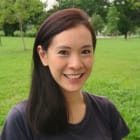Former national athletes Joscelin Yeo and Zhang Tingjun are now teaching kids how to survive in the wild
After representing Singapore and competing at the top of their sports, swimmer Joscelin Yeo and netball player Zhang Tingjun hope to pass on their biggest takeaways to kids at their new wilderness survival camps.
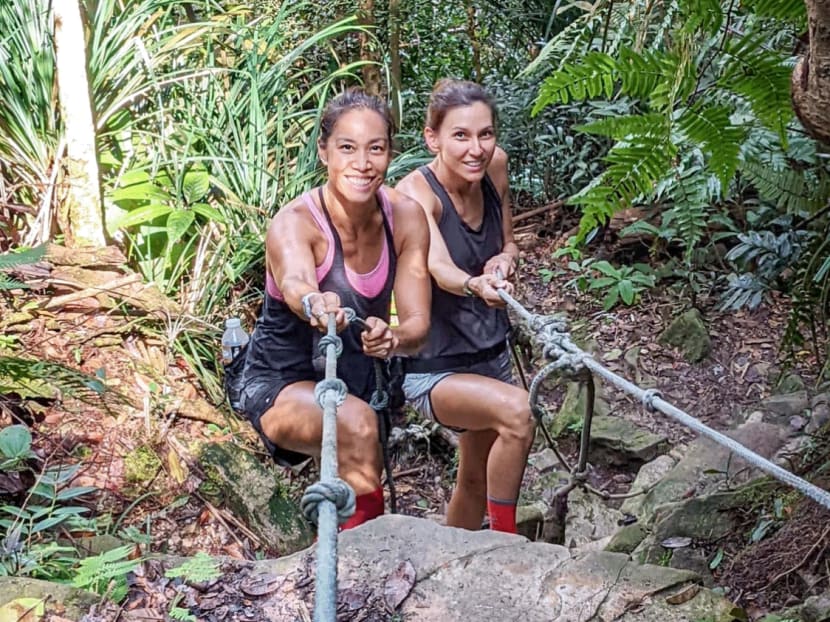
Former national athletes Joscelin Yeo and Zhang Tingjun are organising Wilderness Survival Camps, Disaster Survival Night Camps, and a Girl Squad and Snake Squad for kids. (Photo: Into The Wild)
When a former Olympic swimmer and a former national netball player come together to organise camps for children, what would they teach? If you’re guessing either swimming or netball, you are in for a surprise.
For almost a year, Joscelin Yeo, 43, and Zhang Tingjun, 40, have been organising wilderness camps for children under their new company, Into The Wild. They have since run camps for 700 to 800 kids from the age of four.
These camps are generally three hours long and priced at S$120 per child. They are designed to create unfamiliar situations with unexpected real-life simulations that push kids out of their comfort zone and challenge them to find creative solutions.
The Disaster Survival Night Camp, for instance, creates a simulated natural disaster such as a volcano erupting, earthquake or tsunami. Kids are tasked to chart their own escape route out of the jungle in the dark as a team, without adult support.
The Wilderness Survival Camps teach first aid skills and allow kids to put them into practice during a high-stress simulated injury. Another cool series is the ongoing Snake Squad series, which offers weekly off-the-grid adventures.
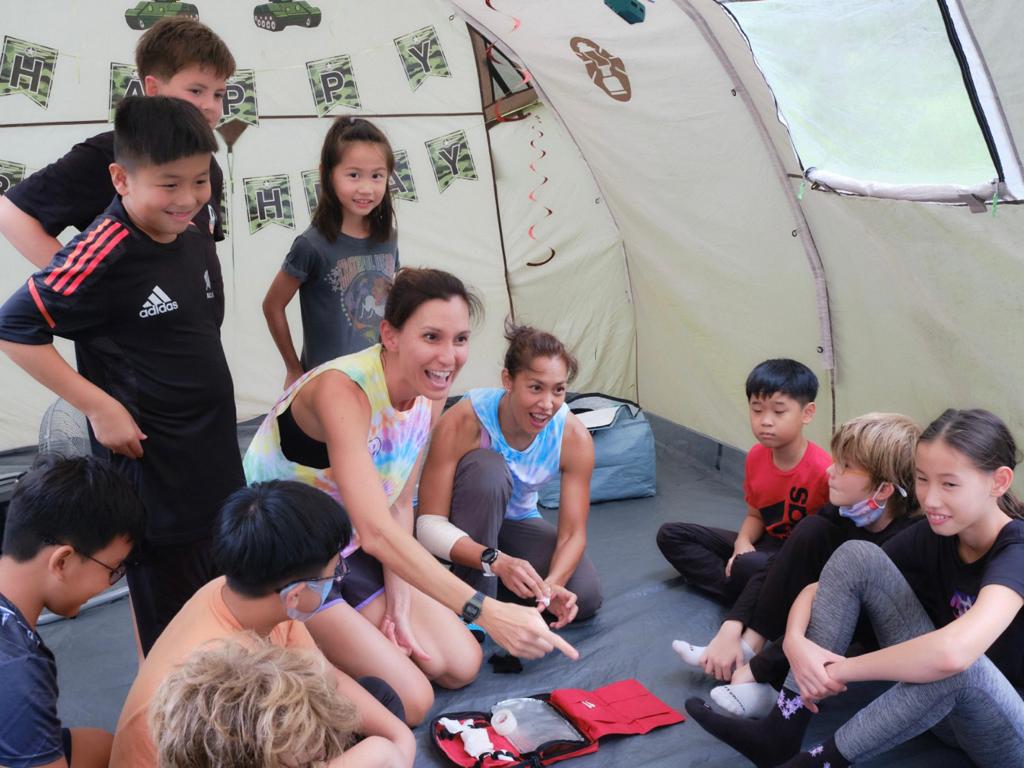
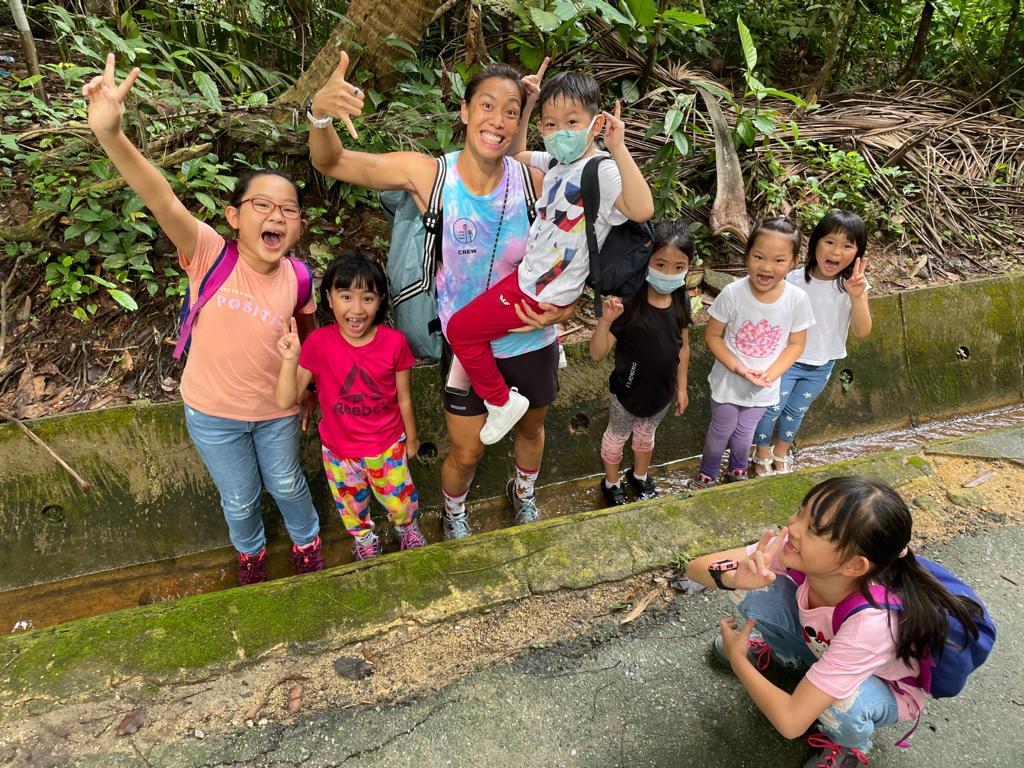
The duo are both wilderness first aid-certified. Zhang is also an emergency medical technician, responding to 995 emergencies such as cardiac arrests. She has also worked in Mercy Relief in different countries, responding to natural disasters. She is a certified snake catcher and handler as well.
“We want to teach real skills that we’ve had to use and build confidence in kids. A lot of times these days, people just sit back and watch when something is happening. Rather than helping, they whip out their phones and take a video. We want kids to learn to be responsive from young, and to not be afraid to step up in an emergency and help,” said Yeo.
NORMALISING INJURY AND RISK-TAKING
But wouldn’t it be more fitting, and perhaps even more lucrative, for these two accomplished sportswomen to teach the sport in which they competed at the highest level? The duo, who became friends last year while mountain biking, takes a very different view.
One of Singapore’s most famous swimmers, Yeo has won 40 gold medals at the Southeast Asian Games and represented Singapore four times in the Olympics. Her biggest takeaway however, has nothing to do with swimming.
“I probably lost more races than I won. People only talk about the wins, but they don’t talk about the races that you lost. Having swum competitively for so many years, I learned a lot about success and failure, and what that does to you as a person.
“When I was younger, my whole identity hung on whether I won a race. If I won, I felt great. If I lost, I saw myself as a failure. I had to learn to not take that as my identity, and bounce back from failures, learn from them and figure out a way to get better,” she reflected.
We want to teach real skills that we’ve had to use and build confidence in kids. A lot of times these days, people just sit back and watch when something is happening.
Besides learning to fail or fall, one other important lesson Yeo gleaned was to have the confidence to put herself out there in the first place. Perhaps that is why Into The Wild camps focus on taking kids out of their comfort zone, empowering them to take risks and make their own decisions, and showing them what to do if they hit a roadblock or get injured.
“Kids in Singapore live in a bubble and tend to be very protected. Sometimes, instead of saying ‘climb higher up the tree’, parents might say, ‘Be careful, you will fall down’. And when kids fall down, they’d say, ‘See, I told you so.’ This instils fear in kids and a sense that they are not capable of doing something,” Zhang reflected
“I also find that some kids ask for permission a lot. They would say, ‘Can I go into this drain or climb this thing?’ That curtails a lot of their creativity and curiosity. It also creates a very risk-averse society. Whereas when we were kids, we didn’t ask, we just did it and if we fell, we fell, right?” she added.
I also find that some kids ask for permission a lot. They would say, ‘Can I go into this drain or climb this thing?’ That curtails a lot of their creativity and curiosity.
One of the ways Zhang and Yeo hope to encourage risk taking is by normalising getting injured. First aid is a big part of the camps because they believe it is important to teach kids what injuries they can help with, and how to recognise the signs of a medical emergency so that they can get timely help.
“In Singapore, when somebody gets injured, it is such a big deal. But is it really? If you get stitches or you break an arm, you put it in a cast and it’s uncomfortable for two weeks. But you get up and go again. It’s changing that mindset that getting injured is something to be afraid of,” said Zhang.
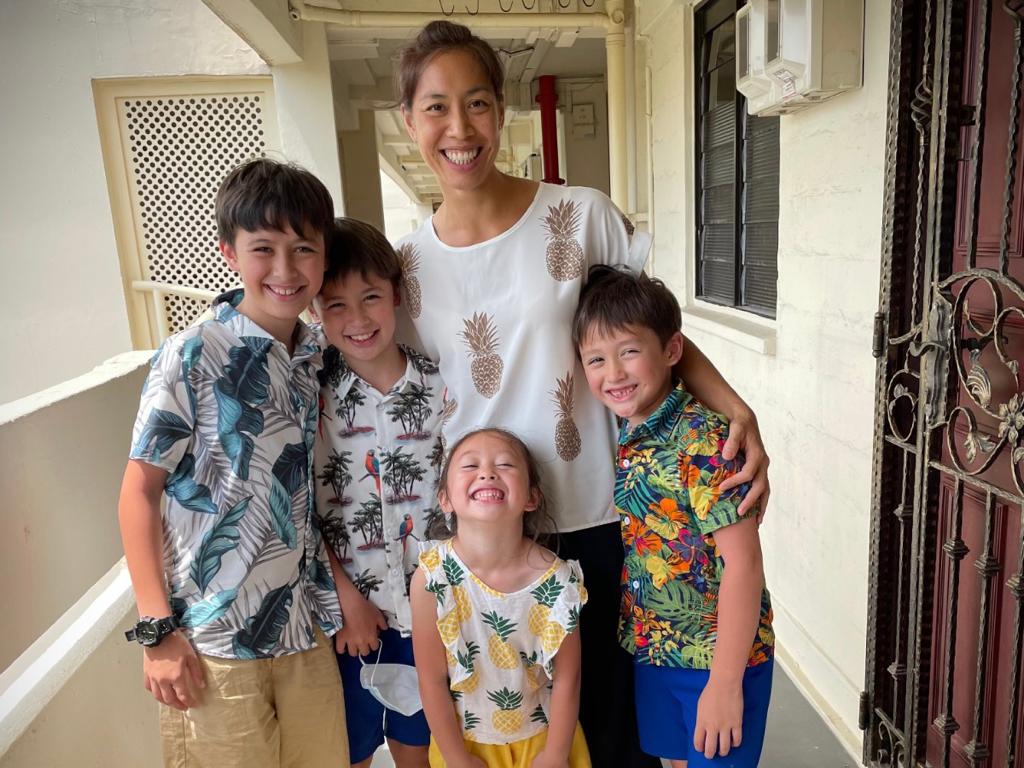
The mother of four children, Yeo recalled a time when her son went down a hill too fast while cycling, fell and scraped his elbow. “There was so much blood. I was carrying my youngest who was about one year old at that time so there was only so much I could do. I needed the older boys to help me do something. Incidents like that make me realise that it is important for kids to know first aid,” she reflected.
After camp, parents have shared that kids have stepped up to stop bleeding or treat a bee sting for siblings. They also tend to stay calmer in an emergency when they know what to do.
PREPARING FOR THE UNKNOWN
Some camps also focus on imparting knowledge about natural disasters, such as what causes an earthquake, and then challenging kids to escape to safety as a team.
While Singapore does not have such natural disasters, Zhang noted that such knowledge will come in handy when kids travel, pointing out that popular destinations such as Bali have volcanic eruptions and Japan has earthquakes.
“We always tell the story of this little girl Tilly, from the UK, who was on holiday in Phuket and recognised the early signs of the Aceh tsunami. She told her dad, who told the security guards who then cleared the beach. Even though she was just 10 years old and from the UK where there are no tsunamis, because of what she knew, she saved 100 people that day,” said Zhang.
Some kids want to kill everything they see … they want to stomp on ants and kill snakes. I think it comes from this idea that these are things to be feared.
But the point, stressed Zhang, is not just preparing for specific disasters, but evolving threats that we may have yet to experience, such as the effects of climate change, coastal flooding, urban warfare and terrorism.
“Though these are not things we grew up with, we live in a different time. What happens when you encounter a situation that you haven’t been trained to respond to?
“Kids need to think beyond immediate challenges, and be conditioned to respond to stressful environments so they don’t end up panicking, and trust in their ability to overcome challenges,” she added.
EMBRACING THE WILDERNESS
The truth is, the duo has been preparing for this for a long time, but never thought of turning it into a business. A doting aunt, Zhang often takes her nieces on “crazy” adventures, and Yeo does the same with her four children.
So when Zhang’s sister suggested they run adventure camps for other kids, they decided to give it a shot. They have since chalked up 40 camps just by word of mouth and returning kids.
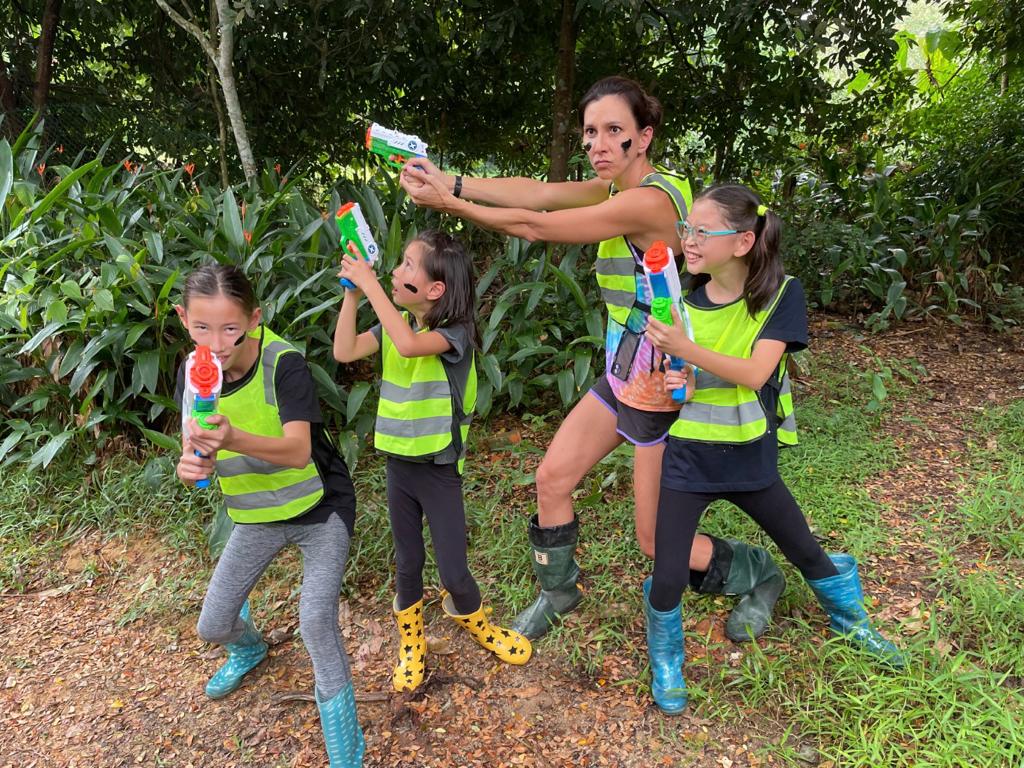
Conducted outdoors, often in the lush jungles of Bukit Timah, the camps bring kids closer to nature. “It is nice to be reminded that Singapore is not just a concrete jungle – there’s the concrete but there’s also the jungle. Nature is our backyard, unlike some places overseas where you've got to drive two hours to get to somewhere to hike or climb,” said Yeo.
Camps are a wildlife spotting opportunity. Both instructors point out cool flora and fauna such as hornbills, frogs, and hammerhead worms to the children. During a recent camp, a child even spotted a bright green Wagler’s pit viper coming out of a drainpipe.
They also offer a fun alternative to screen time, where kids learn to make mud pies, build a fort, and find fun in simple things.
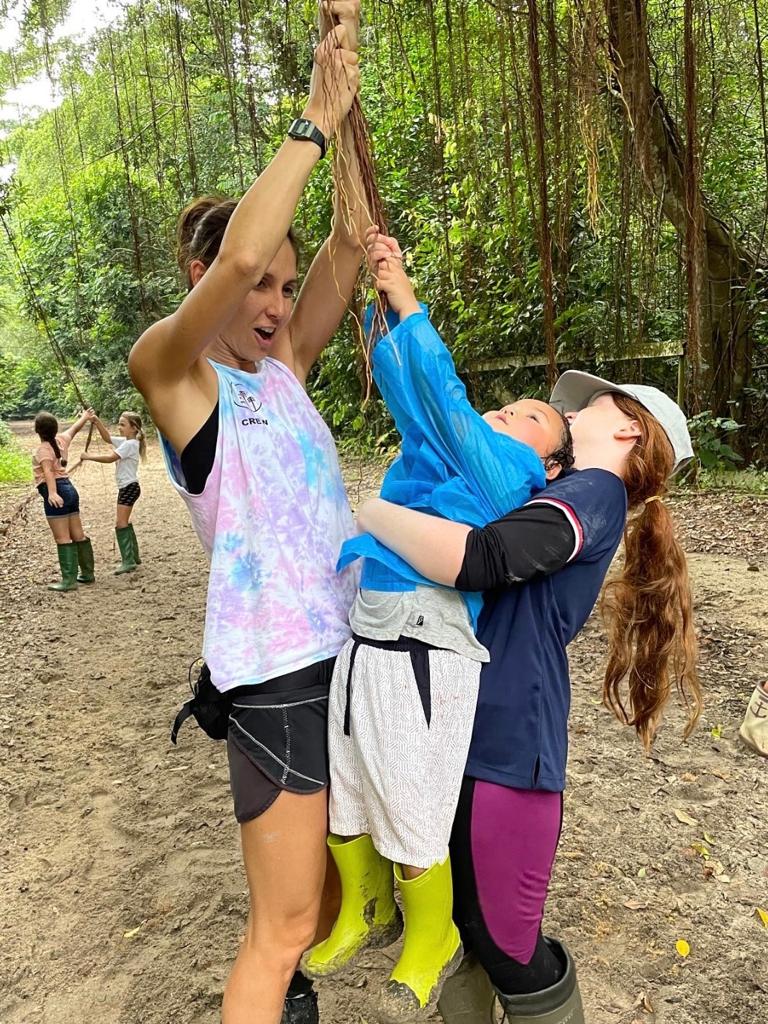
Ultimately, the duo hopes to cultivate a love for nature, and use adventure as a platform for change. “Some kids want to kill everything they see … they want to stomp on ants and kill snakes. I think it comes from this idea that these are things to be feared,” Zhang said.
“I hope to instil an understanding and respect for nature so that not everything scares them and the automatic response is to kill it.
“We live together with wildlife. Monkeys come in through the windows, there are wild boars in Yishun… this is life. In fact, we are lucky to even get to interact with these animals. It’s up to our generation and the next to preserve it,” she added.
CNA Women is a section on CNA Lifestyle that seeks to inform, empower and inspire the modern woman. If you have women-related news, issues and ideas to share with us, email CNAWomen [at] mediacorp.com.sg.


